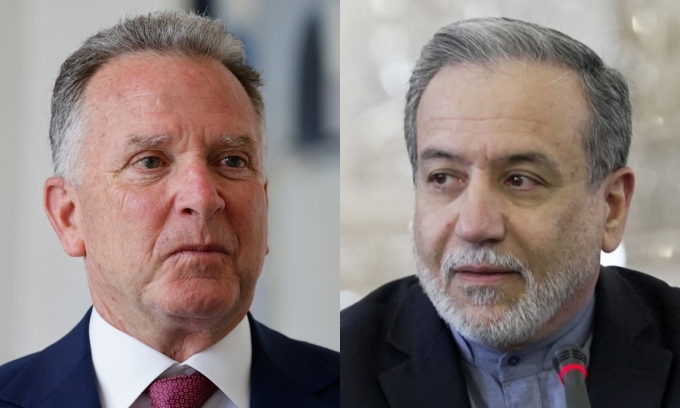
Iran Nuclear Talks in Limbo After Israeli Airstrikes—but Diplomacy May Still Be the Only Way Forward
Israel’s “Operation Rising Lion,” a sweeping air campaign targeting Iran’s nuclear and military infrastructure, has cast doubt over renewed U.S.-Iran nuclear talks. But despite the setbacks, both sides still appear to be seeking a deal.
In April, Washington and Tehran quietly resumed negotiations—their highest-level contact since the U.S. exited the 2015 nuclear accord, formally known as the Joint Comprehensive Plan of Action (JCPOA), in 2018. Five rounds of talks followed in Oman and Italy, which insiders described as “productive.”
On June 12, President Donald Trump announced that the two countries were “relatively close to a fairly good agreement.” A sixth round of negotiations had been scheduled for Muscat, Oman—until Israel launched its pre-dawn airstrikes on June 13, killing several Iranian commanders and nuclear scientists.
Israeli Prime Minister Benjamin Netanyahu has vowed the operation will continue “as long as necessary.” Iran immediately responded with missile attacks and announced a pause in diplomatic efforts. With both nations locked in a cycle of retaliation, the path to any deal has grown increasingly uncertain.
“This could derail diplomacy entirely,” said Suzanne Maloney, director of foreign policy at the Brookings Institution. “But Iran may ultimately have no choice but to return to the table—it’s a matter of survival now.”
Iranian Foreign Minister Abbas Araghchi accused Israel of using the military campaign to sabotage the nuclear talks, arguing it was less about stopping Iran’s bomb-making capability and more about disrupting diplomacy.
“This was a strike against diplomacy,” Araghchi told British, French, German, and EU counterparts in calls on June 16.
Military analysts say Israel’s strikes have severely weakened Iran’s defenses—destroying air defense systems, gaining control over Tehran’s airspace, and depleting Iran’s missile reserves. Even traditional allies in the region have offered little support.
“They’re running out of options,” said Sanam Vakil of Chatham House. “Whether they like it or not, diplomacy—particularly with the Trump administration—is now their best exit strategy. But they’ll need to avoid provoking the U.S. any further.”
The next phase of diplomacy hinges on how—and when—the current Israel-Iran conflict is brought to an end.
Araghchi said Iran remains open to a deal if Israel halts its attacks, but insisted Tehran won’t accept any agreement that strips it of the right to enrich uranium for civilian purposes. He reiterated Iran’s opposition to nuclear weapons, while asserting its right to peaceful nuclear research.
Speaking to Fox News on June 16, U.S. Defense Secretary Pete Hegseth confirmed that President Trump is still aiming for a nuclear agreement with Iran. “We’ve positioned our forces to support diplomacy, and we’re hopeful it can happen.”
Trump, however, appears to be using the Israel-Iran conflict as diplomatic leverage. He confirmed he was aware of Israel’s plan to strike and wasn’t surprised by it—nor did he ask either side to back down.
“President Trump didn’t tell us to stop,” said Israeli Finance Minister Bezalel Smotrich.
Some Israeli officials argue that Iran’s renewed interest in negotiations is a tactic to buy time. They’re urging Trump to delay talks until Israel secures a decisive military advantage.
“Iran is trying to drive a wedge between the U.S. and Israel,” said Avner Golov, a former senior policy director at Israel’s National Security Council. “They’re hoping Washington pressures Israel to stand down and give diplomacy a chance.”
Trump said on June 16 that Iran had sent messages—via Arab intermediaries—indicating a willingness to negotiate. Tehran has yet to confirm the outreach.
“They want to talk—they should have done that earlier,” Trump said at the G7 summit in Canada. He is cutting his trip short to return to Washington and manage the Middle East crisis.
Axios reported that U.S. envoy for the Middle East Steve Witkoff may meet with Araghchi later this week, with talks focusing on a potential nuclear deal and ceasefire framework between Israel and Iran.
“We’ll get back to the negotiating table eventually,” said Karin von Hippel, former director of the UK’s Royal United Services Institute. “The question is, at what cost—to Israel, to the region?”
She noted Iran’s pride and Trump’s hardball tactics are major hurdles. “Trump likes forcing people into corners. But Iran won’t give up its dignity easily.”
Observers agree any future deal is likely to resemble the original JCPOA—something Iran can live with, even if rebranded as a Trump-led victory.
“Trump wants a win with his name on it,” von Hippel said. “If the deal includes safeguards for Iran, he could still claim success.”
Sources: Reuters, The Wall Street Journal, Axios, The Conversation
Hello Shuttle will strive to bring the latest updates. At the end of the day.
Are you looking for reliable airport and cruise port transfer services in Los Angeles?
We offer professional, safe, and punctual transportation from
Los Angeles Airport - LAX
Long Beach Airport - LGB
John Wayne Airport - SNA
San Pedro cruise port
Long Beach cruise port
Disneyland
and other destinations.
Let us make your journey stress-free and comfortable with our dedicated drivers and high-quality vehicles. Book now for the perfect travel experience at www.helloshuttle.com or call 944-800-5678!


